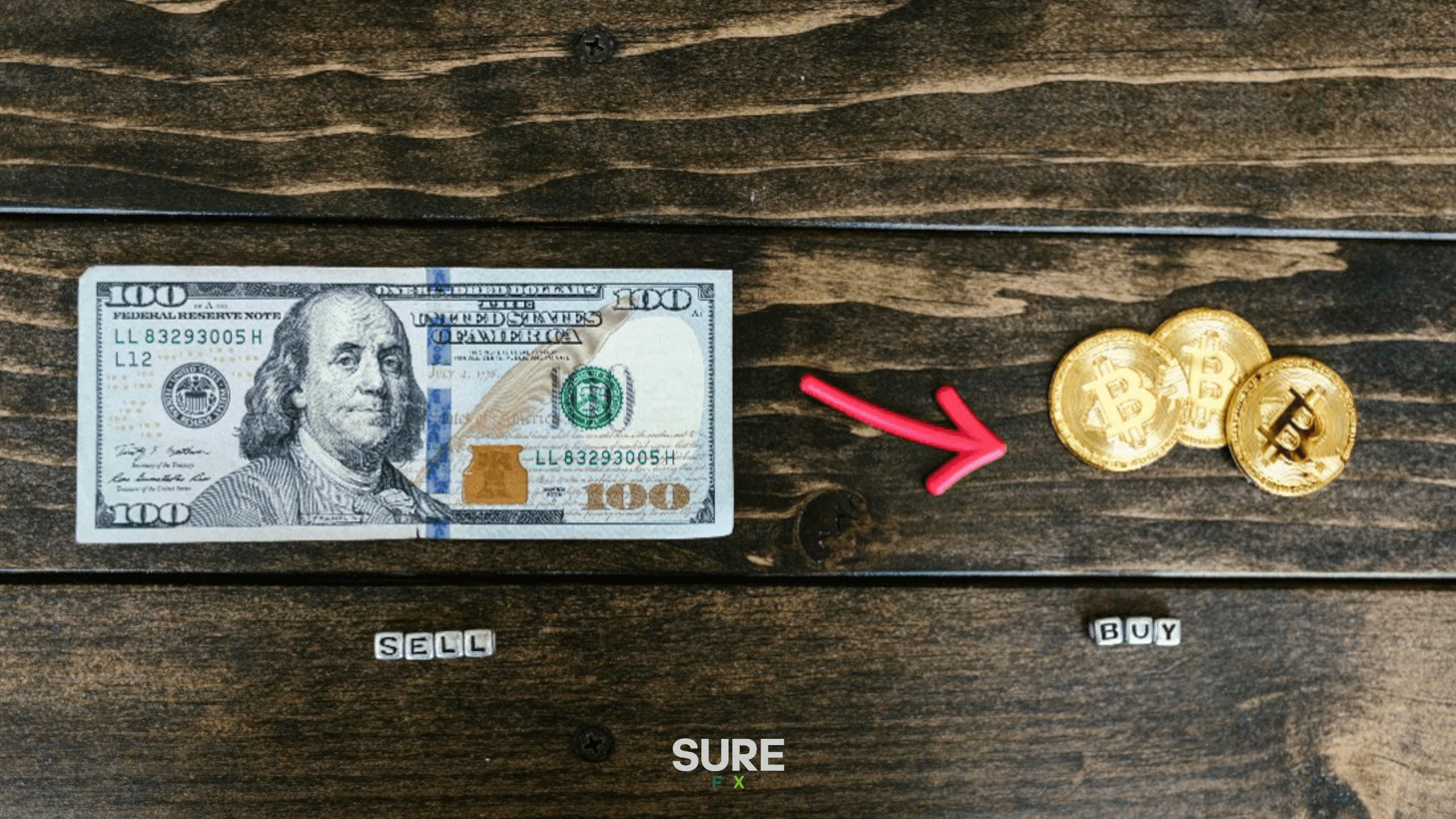D
id you know that 80% of day traders quit within the first two months? That’s a staggering statistic and one that highlights the biggest mistakes traders make. These trading errors can quickly derail your progress if you’re not careful.
So, what are these mistakes, and how can you avoid them? In this guide, we’ll break down eight common trading errors and provide helpful currency trading tips to help you stay on track. Stick with us until the end—avoiding these mistakes could be the key to your success.

- Trading Based on Emotions
One of the biggest mistakes traders make is letting emotions dictate their trades. For beginners, the rush of emotions like fear and greed can cloud judgment. Greed drives overtrading—constantly chasing every opportunity—while fear causes traders to panic, avoid trades, or prematurely exit positions.
Fear of missing out (FOMO) and fear of loss are two common emotional pitfalls. FOMO occurs when you think you’ll miss a big market move, while fear of loss may prevent you from taking calculated risks or prompt panic selling.
How to avoid it?
Trading is 90% psychology and 10% technical skills. One of the best currency trading tips is to remain disciplined and stick to your strategy, even when emotions are running high. If you experience a loss, accept it, and don’t engage in revenge trading. Focus on making decisions based on logic, not emotion.
- Trading Without a Plan
Trading without a plan is one of the most dangerous trading errors. A trading plan serves as a roadmap, outlining your risk/reward ratio, strategy, timeframe, and preferred trading sessions. Without it, you’re essentially trading on impulse, which often leads to losses.
How to avoid it?
Always plan your trades and trade your plan. Write down your strategy and rules, and refer to them regularly. Failure to follow your plan can lead to trading errors that could have been avoided. Keeping a clear set of guidelines will help you maintain focus and discipline.
- Ignoring Risk Management
Not managing risk is a critical mistake that many traders make, especially beginners. Many jump into the market using high leverage, trading without stop-loss orders, or neglecting to set take-profit levels. This can quickly lead to wiping out your account.
For example, entering a trade without a stop-loss means you risk losing your entire account if the market moves against you.
How to avoid it?
Incorporating solid risk management into your trading plan is essential. Here are some currency trading tips:
- Always set stop-loss and take-profit orders.
- Limit the amount of risk per trade to 1% of your total account balance.
- Avoid excessive leverage.
These simple rules can help protect your capital and minimise your exposure to large losses.
- Letting Losing Trades Run
Another common trading error is holding onto losing positions in the hope that the market will turn around. Many traders find themselves paralyzed by a losing trade, either holding it too long or panic-selling at the wrong time.
How to avoid it?
It’s better to take a small loss than to let it snowball into a bigger one. Using a stop-loss order can help you minimize losses while keeping your emotions in check. By following a disciplined risk management plan, you can protect your account from significant drawdowns.
- Not Identifying Your Trading Style
Many traders dive into the market without understanding their personal trading style. For example, some may try scalping without realizing it’s not suitable for everyone. Fast-paced day trading can be profitable, but it requires an in-depth understanding of market trends, something many beginners don’t possess.
How to avoid it?
Identify your trading style early on. Whether you prefer scalping, swing trading, or long-term investing, it’s important to tailor your strategy to your chosen style. Knowing your preferences allows you to focus your efforts and avoid mistakes that can arise from adopting a strategy that doesn’t fit your personality or skill level.

- Jumping Between Markets
Chasing profits across multiple markets—such as forex, stocks, commodities, and crypto—can lead to distractions and losses. Many traders fall into the trap of jumping from one market to another, hoping to find the next big opportunity, but this can be a mistake.
How to avoid it?
Focus on mastering one market before branching out. Whether you choose to trade forex, stocks, or any other asset class, take the time to understand the nuances of that market. Becoming an expert in one area will reduce the likelihood of making emotional trading errors.
- Starting on a Live Account Too Soon
Trading with real money before fully understanding the market is a mistake many beginners make. Some traders may get lucky at first, but most end up wiping out their accounts through inexperience and lack of discipline.
How to avoid it?
Start with a demo account to learn the ropes without risking real money. A demo account offers a realistic trading environment and lets you practice executing trades, analysing the market, and applying strategies. This is one of the best currency trading tips for new traders.
- Failing to Keep Learning
As legendary investor Charlie Munger once said, “If you don’t keep on learning, other people will pass you by.” This sentiment is particularly true in trading. The best traders are those who continue to educate themselves, whether by reading books, watching tutorials, or studying market trends.
How to avoid it?
Commit to constant learning. Read educational content, watch training videos, and study successful traders. Brokers like Dominion Markets even offer dedicated educational resources for beginners, which can be a valuable asset to your growth as a trader.
Conclusion:
Trading can be overwhelming, especially when you’re just starting. However, avoiding these biggest mistakes traders make can help increase your chances of success. By incorporating solid strategies, managing your risks, and learning continuously, you can develop the skills necessary to become a successful trader.
Choosing the right broker is also essential in minimizing trading errors. A reputable broker ensures you have access to the right tools, education, and risk management features, making your trading journey smoother and more rewarding. Dominion Markets, for example, offers the resources you need to stay ahead of the curve and avoid common mistakes.
By following this advice for forex traders and committing to your learning, you’ll be in a much stronger position to succeed in the competitive world of currency trading.






